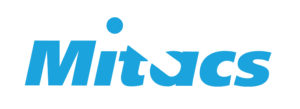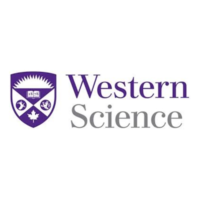Toolkit | Project
Post Secondary Institution – Faculty of Science
Western Science: Toolkit Used to Develop a Stakeholder Engagement Campaign
By: John Drahushchak, Sustainability Coordinator – Faculty of Science at Western University
August, 2015
Housing over 8,000 students, faculty and staff, in departments ranging from Statistical & Actuarial Sciences to Applied Mathematics, Science is the second biggest faculty within Western University. Located in London, Ontario, Western Science has recently made the environment and sustainability one of its strategic research priorities, while the University itself has formed the President’s Advisory Committee of Environment and Sustainability (PACES). Within this context, Western Science has begun to review the performance of its departments in order to ensure that a culture of sustainability permeates into all aspects of the Faculty.
A common pitfall which Western Science sought to avoid is the fragmentation or compartmentalization of sustainability efforts. There exists a common temptation to pursue environmental initiatives for quick gains, without first establishing a proper sustainability plan. This often results in limited success with programs that are difficult to continue and build upon. Using the Sustainability Toolkit, Western Science was able to focus on the metric of stakeholder engagement with a comprehensive and effective employee engagement plan, which will result in a process of continual improvement.
The Dean’s Office in Western Science was chosen to pilot a stakeholder engagement campaign, with the eventual goal of expanding the efforts into other departments. The Sustainability Toolkit and its 13-step process provided the framework upon which the campaign was constructed and implemented. The “Plan” phase in particular provided the necessary guidance to avoid implementing initiatives which would provide small gains, but not succeed in establishing a long-term sustainability target. Key aspects of the campaign included establishing routine communication with stakeholders through newsletters, learning lunches, and articles, in addition to office initiatives designed to encourage more sustainable behaviour and raise recycling rates.
The Toolkit process did not require conformity to a specific standard, but was designed to work within the policies and programs already present within the Faculty. As a result, the Dean’s Office stakeholder engagement campaign was very successful in using the Toolkit process, while also participating in the Green Office Program. This initiative was created by Facilities Management and offers points and rankings to campus offices that modify their operations to act in a more sustainable fashion. The Associate Dean of Administration, Louise Milligan, remarked that, “The Dean’s Office team is on board with the Green Office initiatives (getting in the competitive spirit as we strive for a higher ranking!), and we enjoy the D.O. Sustainability newsletter. John has taken the notion of sustainability to the practical level and increased our awareness.”
A challenge to the implementation of sustainability measures was the organizational structure of Western. For example, since Facilities Management is responsible for the operations of every building on campus, collaboration with them is a necessary of most sustainability efforts. Through the engagement process they were an important part of helping to measure the impact of efforts, and providing resources to aid with recycling programs. The Sustainability Toolkit provided a way to identify key individuals, while the Action Plan and Assessment Tool was used to consolidate the information, which will allow for an easy transition between coordinators of sustainability projects.
To capitalize on the momentum of a successful stakeholder engagement campaign in the Dean’s Office, it was recommended that these efforts now be expanded to encompass individual departments and the student body. The process document, which was based on the 13-step process, will provide a framework to expand existing sustainability initiatives and help to create new ones. Initiatives designed to divert waste and incorporate students are underway, and Western Science is working hard to become a model for sustainability on campus.
 The research for this case study was funded with the support of a Mitacs Accelerate grant. For more information on the research project, please view our blog and white paper.
The research for this case study was funded with the support of a Mitacs Accelerate grant. For more information on the research project, please view our blog and white paper.


